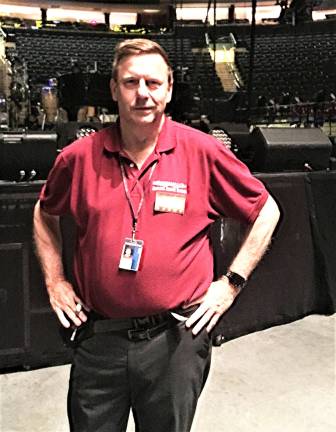one man’s second Act(s)

“On the first day of my job as an air traffic controller,” said Michael Kurz, who happens to be my husband, “I knew the retirement date — my 56th birthday.” The FAA booted you out then, which was understandable, given the high stress and hair-trigger responsiveness demanded by the job.
Kurz knew he’d travel after he retired, but not how much. He also knew he wanted to volunteer, or “keep busy.” As he approached 56, he realized that if he blew out the candles and sat on a couch it could kill him.
He was right, and if you’ve decided to rest your way through your senior years, there’s something you should know — sitting is right up there with smoking as a risk factor for ill health. According to the American Journal of Epidemiology, the list of diseases linked to the couch potato lifestyle includes Alzheimer’s, Parkinson’s, stroke or other cardiovascular disease, diabetes and cancer, to name just a few. Inactivity can also increases your risk of suicide. In all, sitting on your butt for six or more hours a day raises your risk of dying by 19 percent, compared to those who sit for less than three hours.
As a man, Kurz had another phenomenon working against him — women are better at retirement than men are. Women typically congregate more, reach out more, and join more. If there isn’t a social circle nearby, they’ll make one. The founder of the Red Hat Society created a women’s group now topping 50,000 members in 30 countries, with three active chapters in the New York.
If you go to the Meetup.com site, you’ll see many more female events than male events. And, for the most part, the male meetups seem to involve either Futsal games or gay-themed gatherings. Women also volunteer more than men. Membership in Nation Service, the country’s largest volunteer organization, averages 34 percent women to 27 percent men. These types of activities get you out the door, down the street, meeting new people, experiencing new things.
Three Dream Jobs Kurz always enjoyed sporting events. He was sitting at a Madison Square Garden hockey game and, looking at the usher nearby asked his friend, “I wonder how you get a job working here?” That’s how it started. He was still working full time at the FAA, including a day of over time each week. Yet he signed up for the Local 176 Licensed Ushers and Ticket Takers and applied to Madison Square Garden and got in. It was a perfect job at the time, because he had limited availability and could opt in around his regular work schedule.
Kurz had been ushering at Madison Square Garden going on eleven years. But there were lulls in the work, especially when the Rangers or Knicks didn’t make the post-season. So he took the ferry to Staten Island, where a minor league Yankees team plays from mid-June to early September. He began working there as well. “It’s a change of pace,” Kurz said. “I’m outside, I get to watch the game. It’s great.”
He next responded to an ad for a theater usher that he saw in Playbill, but ended up taking another course. Still, that’s an option, especially for avid theater fans.
As he was coming off of a cruise on the Queen Mary earlier this year, he started schmoozing with one of the customer service agents. They got to talking about the job, how to apply, and now Kurz has a new job to fit into his schedule, helping passengers and handling other tasks.
Marathon Man Kurz gets weekly lists of events requiring ushers, ticket takers or cruise assistants and he chooses his own schedule. His calendar is color coded, with potential gigs in pencil, waiting for his choice. He controls how much or how little he works. All his jobs require him to stand; a good thing.“I don’t do it for the money,” he said, but then added, “but it never hurts.”
There’s a social aspect to each job, a camaraderie among the coworkers. At the Garden, there is a sense of belonging when he’s watching team sports or a favorite rock band. Also, “It’s different every day,” he explained. “I don’t have someone telling me when I have to come in, that I have to cancel a race.”
A race? Yes, a race. Kurz ran the New York marathon for the first time at the age of 59. He hadn’t run in about 30 years before he trained for a season. He’s in training to run it again in 2020.
“Why do you keep so busy?” I asked him. “Is it because you don’t want to die?”
“Yes,” he replied, heading out the door.